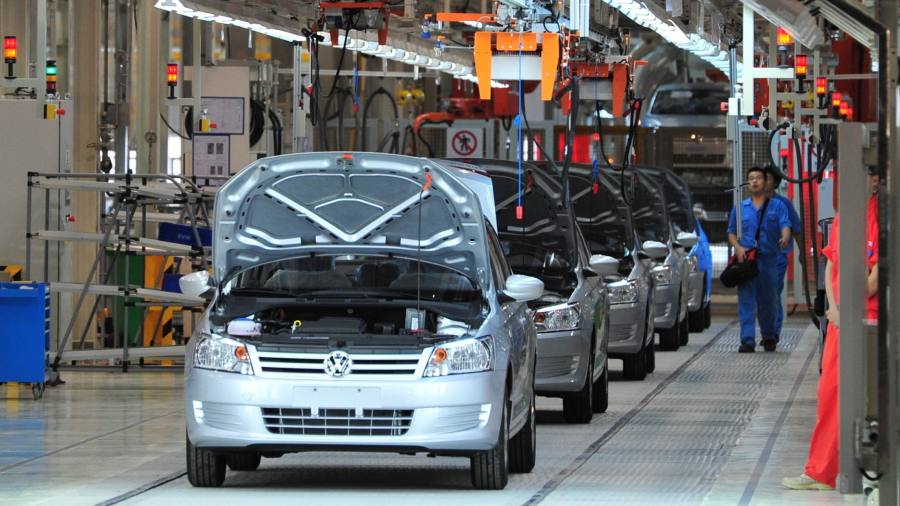Volkswagen intends to commission an independent audit of its factory in Xinjiang, as discussions with its Chinese joint venture partner have turned “fruitful” following persistent complaints by investors and human rights organisations.
Chief executive Oliver Blume on Wednesday said that the German carmaker would commission an external audit into working conditions at the 240 employee-strong plant “as soon as possible”.
“Our aim is to be as quick as possible, and show that everything is right over there,” he said. Blume’s comments came after a non-profit organisation on Tuesday accused VW of being linked to forced labour in Xinjiang in a formal complaint filed with German regulators.
Criticism of the plant, which is run by VW’s Chinese joint venture partner SAIC, has grown recently. Human rights protesters stormed the carmaker’s annual general meeting last month, while investors demanded an independent audit.
VW’s decision to push its state-owned partner on the Xinjiang plant is a risky move. Chinese consumers have in the past boycotted brands that do not publicly accept Beijing’s rejection of claims that it is carrying out human rights abuses in the region, including alleged mass interment in detention camps and forced labour.
It will also be difficult for VW to find an independent auditor that can survey the plant in Xinjiang’s capital Urumqi, as China has recently cracked down on consultancy and auditing firms, under the rubric of national security.
In March, US due diligence firm Mintz was raided — partly as a result of its work in Xinjiang. Chinese state media have also recently reported how security services punished a Chinese citizen for working with a foreign NGO conducting an audit related to human rights in Xinjiang.
VW is currently fighting for its leading market position in China, where it makes nearly half of its profits after having entered over four decades ago, helping to build up the country’s car industry from scratch.
The company’s chief financial officer Arno Antlitz on Wednesday said the company had slightly reduced its targets on electric vehicles sales in China over the next two years in a bid to protect margins, which are boosted by sales of combustion engine cars.
Ahead of its capital markets day on Wednesday, the company announced a new “value over volume” strategy under which it would give its various brands, which includes Audi and Porsche, more independence in a bid to boost margins during the challenging transition to electric vehicles.
Earlier this year, Volkswagen’s China head Ralf Brandstätter announced that its Xinjiang plant was no longer producing cars and that there were no plans to resume production; instead, it quality checks cars for sale in the region.
Read the full article here




